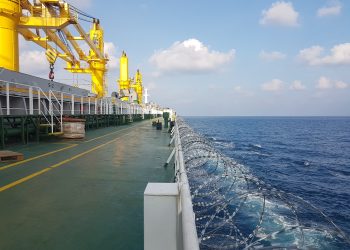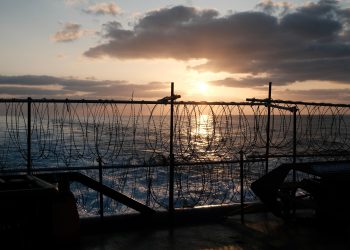From 6 to 9 September 2011
 A groundbreaking international anti-piracy conference will take place this week at the Le Meridien Barbarons hotel. Co-hosted by Seychelles and the South Asia and Africa Regional Port Stability Cooperative (SAARPSCO), the conference opens tomorrow and will run until Friday.
A groundbreaking international anti-piracy conference will take place this week at the Le Meridien Barbarons hotel. Co-hosted by Seychelles and the South Asia and Africa Regional Port Stability Cooperative (SAARPSCO), the conference opens tomorrow and will run until Friday.
The high-level meeting, the first of its kind, will serve as a catalyst for the international community to forge powerful global alliances, ultimately to defend the sea, one of the planet’s most valuable treasures. In this unprecedented forum, to be held under the theme ‘Piracy: Orchestrating Response’, global leaders or “captains” from throughout the word will assemble to address the most vexing piracy issues.
Representatives from key ministries in the Seychelles, as well as the Ports Authority and the Financial Intelligence Unit, will be joined at the conference by corporate and government leaders from throughout the European Union, New Zealand, South Korea, Mauritius, India, the United States and other partner nations, as well as the United Nations, INTERPOL, EUROPOL, and the US Navy Criminal Investigative Service (NCIS).
The comprehensive agenda will cover key issues related to piracy, and workshops and panel discussions will include: The global challenge of piracy: Piracy, maritime security and information sharing. The impact of piracy on the fishing, cargo shipping, and cruise line industries; The operational response to piracy, including best management practices and rules of engagement; The criminal justice system’s position on piracy, including the legal basis for prosecution and the importance of domestic legislation, as well as elements of Somalia’s legal system, involving prisoner detention capacity and complications in the transfer of prisoners.
The private sector’s response to piracy, such as the role of private armed guards or the military onboard vessels plus the shipping industry’s view on ransoms and their place in the piracy business model. Deciphering and dismantling piracy’s highly developed organizational structure and financial schemes. The enhancement of port security and the costs of piracy, with special emphasis on both the human and economic tolls. Other noteworthy features of the conference include a personal account by a celebrated former hostage, Captain Francis Roucou, who will also avail of the opportunity to launch a book he has written about his ordeal. The event will also be an occasion to pledge urgently needed donations for the famine victims in Somalia. A few centuries ago, the notion of piracy inspired romantic images of misadventures on the high seas. The threats posed by modern-day buccaneers, or pirates, are very real indeed. Local attacks on ships have evolved into regional and international crimes, as piracy has become more widespread, daring, corrupt and violent.
The tide is now turning dramatically. The international intelligence community is a formidable counter threat to pirates. “Captains” in the public and private sectors are uniting to overwhelm and defeat this menace. Navigating the world’s waterways will become far less perilous as we continue to make great strides in the prosecution, early detection and prevention of piracy.
Source: Seychelles Nation Online




























































